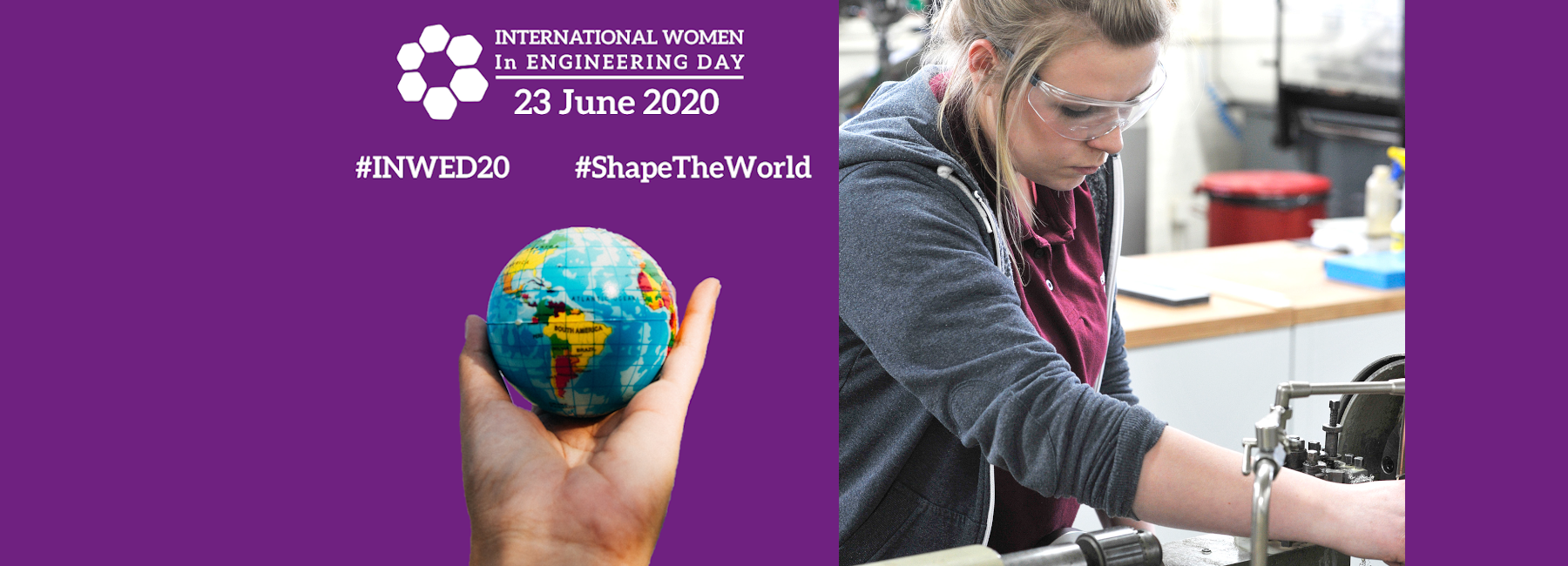
Women in Engineering - Jessica Monk
We’re proud to be taking part in and celebrating ‘International Women in Engineering Day’ on 23 June.
We speak to Jessica Monk
Manual machinist and RPS (Radiation Protection Supervisor)
MRC Harwell Institute
Apprenticeship Route
Tell us about your sector and what makes it interesting?
MRC is a research council and all my work goes into helping scientist who are increasing the understanding of how genes work is the first step to developing new and novel therapies for disease in both human medicine and in veterinary practice. I find it interesting because I learn so much about the science and how the projects I’m involved in help them.
Tell us about your job. What does a typical day at work look like for you?
I am part of an Engineering and Estates team which consists of 12 people. I work in the machine workshop where there are only two of us. I make bespoke pieces of equipment for the scientists using different techniques ranging from manual machining (turning and milling), laser cutting and 3D printing. I am also an RPS (Radiation Protection Supervisor) that involves maintenance and care of the radiation cells on site.
No two days are the same because all of the work that’s done is bespoke and I very rarely make the same thing twice. My job is unique in the fact I am involved the whole way through the job. Designing the equipment at the start making a prototype, once the customer is happy after trialling it I then make the real thing. Once the job is finished I convert all my sketches into engineering drawings on the company drive where they can be located in the future. Quite often a project will be completed by myself from start to finish.
How does your work affect people’s lives/the world around us?
The work the scientist do at MRC Harwell is helping people all around the world with research which is helping to better peoples lives. If my department wasn’t here to help aid them with their work then it would be impossible for them to get it done.
What’s one of the most exciting projects you’ve ever done?
One of the most exciting things I have been involved in was when a job I had designed and made was noticed by visitors we had on site. I handed my drawings over and eventually it was mass produced by a large company so other research councils had access to it. It has been made by quite a lot for people offsite now and that’s very rewarding when you hear such great feedback about your work.
What’s most challenging about your job?
The most challenging thing about my job is communication with the customer. They quite often come in knowing exactly what they want but going from that to me actually making it a reality is something completely different. I have to try and understand the experiment that they are doing so I can decide on appropriate materials and how I am going to actually manufacture it.
What are the most important skills you use within your job and why?
An important skill in my job is problem solving and being able to see the finished product before its made. I do the whole job from start to finish without other people help who could potentially spot problems so it’s very important that I anticipate problems myself that might occur before I get to them and solve them. This makes everything more efficient.
What aspirations do you have for your career in the future?
I would love to have my own manual machine shop that specialised in parts for old classic agricultural machines.
In the real world I would just like to keep progressing and move to a company where I’m doing a similar job to what I am now but progress and build on my skills.
Who inspires you?
The person who inspires me is my Dad, he has taught me to work for what I want and has always been a great support for me. Seeing everything he has achieved in his life motivates me to do better and I strive to make him proud.
Do you feel there are enough opportunities for Women within the engineering sector? If so/not, why?
I feel there are a lot more opportunities now for women in engineering. More people are raising awareness about it and encouraging women not only in engineering but in other male dominated industries which I think is great.
What advice would you give a young Woman who was considering engineering as a future career?
I would encourage any women who wants to get into engineering to try different types. When I first started college I thought you chose either mechanical or electrical and that was it. But in reality that is just the start there are so many different types of engineers who work in all sorts of sectors. If I had known this sooner I would have done more research and more work experience in different areas to broaden my options.
